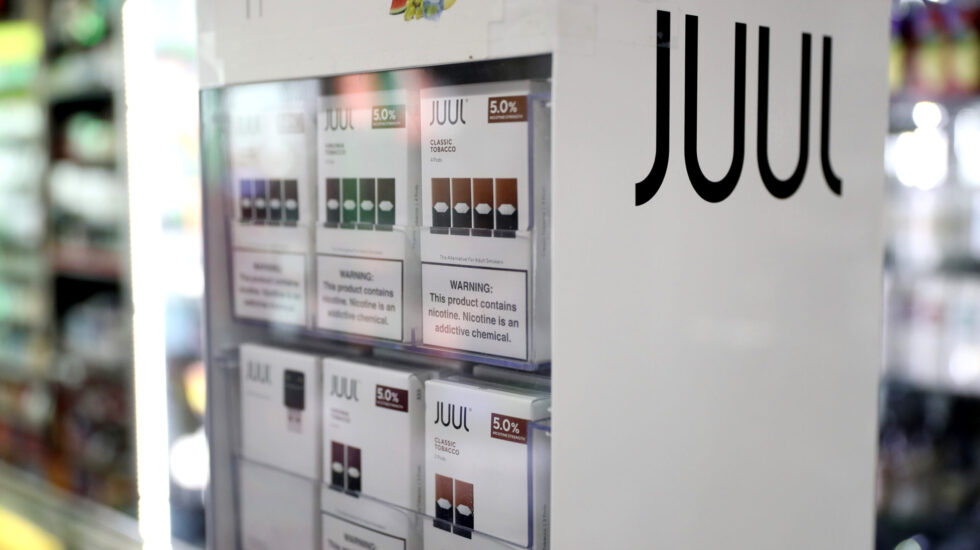The e-cigarette company Juul is paying the state of North Carolina $40 million to settle the first of a series of lawsuits nationwide that accused the company of marketing tactics that helped spark nicotine addiction among teenagers.
The lawsuit, filed in 2019, accused Juul of designing, marketing and selling e-cigarettes to attract young people. It also claimed that the company misrepresented the potency and danger of the nicotine in the company’s products, which violated the state’s Unfair and Deceptive Trade Practices Act.
According to the New York Times, Juul denies any wrongdoing or liability in the agreement, but it has agreed to a number of limitations on how it sells and promotes its products, which have a high level of nicotine.
Per the settlement, Juul will now only allow its e-cigarettes to be sold behind the counter in North Carolina stores, and to implement third-party verification for online sales. The company has also committed to sending teenage “mystery shoppers” to 1,000 stores eat year to see if those vendors are selling the e-cigs to minors.
The company also cannot use models that are younger than 35 years of age in advertisements and can’t post any advertisements near schools.
In a statement announcing the settlement of the two-year-old lawsuit, NC attorney general Josh Stein did not hold back in describing the danger Juul posed to the state’s teenagers.
“For years Juul targeted young people, including teens, with highly addictive e-cigarettes. It lit the spark and fanned the flames of a vaping epidemic among our children — one that you can see in any high school in North Carolina.”
A Juul spokesperson issued a statement on behalf of the company:
“This settlement is consistent with our ongoing effort to reset our company and its relationship with our stakeholders, as we continue to combat underage usage and advance the opportunity for harm reduction for adult smokers.”
This is likely just the first of a number of settlements Juul will be negotiating in the coming months, according to the Times:
Thirteen states, including California, Massachusetts and New York, as well as the District of Columbia, have filed similar lawsuits. The central claim in each case is that Juul knew, or should have known, that it was it was hooking teenagers on pods that contained high levels of nicotine. Some of the youths in the cases claimed serious harm, including possible lung damage and mood disorders. E-cigarettes and other vaping products were initially conceived to be a reduced harm alternative to combustible cigarettes, which are linked to the deaths of about 480,000 people in the United States each year. But Juul, which featured young, hip-looking people in its first advertisements, billboards and social media, quickly caught on with teenagers and young adults who had never smoked. Although nicotine is not deadly, some research shows it can impair the developing brain.
